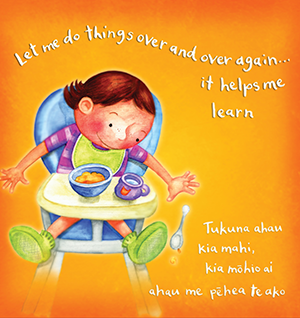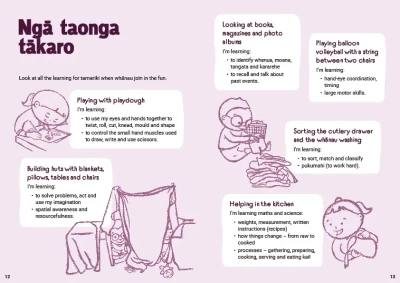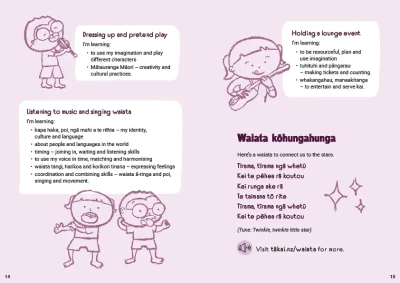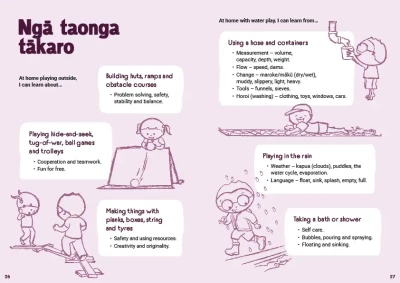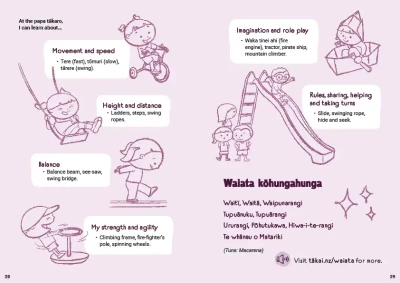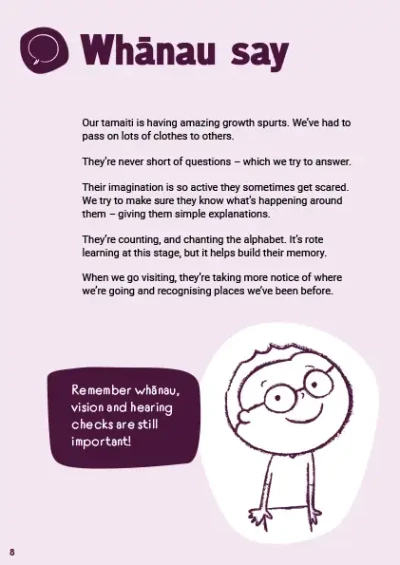
Play
Tamariki and whānau playing together is great for everyone. It provides fun learning opportunities and nourishes the development of healthy relationships.
Play and progress
As tamariki move from babyhood into childhood, they continue to enjoy playing, especially with whānau and friends they know and who know them.
Tamariki are likely to enjoy physical activity, and although they may be more confident and energetic, they can still be cautious about trying new things. Whānau support and encouragement remains key to their continued progress.
Ask whānau:
- What have you been noticing recently about your child’s:
- play
- physical activity
- attempts to try new things?
When whānau play with their tamariki, it can be the start to developing other life skills. Learning to share, taking turns, following simple rules and communicating can all develop through games.
Help whānau to understand that for their tamaiti at this stage, these skills are still a work in progress.
Fun, friends and feelings
Tamariki begin to play more with other tamariki at this age. They’re beginning to understand that others have feelings, and they may get upset if someone else is upset – this is the beginning of empathy.
This is also an age when tamariki develop a sense of humour and enjoy jokes and tricks.
In Whakatipu booklet Te Māhuri, page 8, whānau talk about their tamaiti and their active imagination – it's so active that, at times, they can scare themself!
Ask whānau:
- What have you noticed about your tamaiti:
- using their imagination
- using their social skills
- using their turn-taking skills
- playing with others
- sharing some things sometimes?
When tamariki are part of whānau activities, they’re surrounded by all sorts of rich playing and learning opportunities. When whānau have been playing, singing, listening and laughing together with their kids, they’re not only helping their development but sharing the richness of their family’s unique language and culture.
Ask whānau:
- What recent experiences have you enjoyed together with your tamariki?
- What do you think they might have learned through it?
Free play
This term describes how children will independently explore and learn without always needing a formal structure to their play. It could also highlight that enjoying and learning through play doesn’t need money or a lot of resources.
What it does need is:
- an experience: a place, people or something to explore
- whānau, grown-ups and other tamariki to:
- talk to – to ask open-ended questions and share their thoughts and ideas
- have fun with
- listen to
- guide and keep safe
- encourage and support
sing and dance and share stories with.
Relationship building
Play is more than games and activities. More than anything, it’s about relationships. Playfully participating in everyday things with trusted people can be a way of building, rebuilding and sometimes repairing relationships with tamariki.
Helpful resources for whānau
-
Child development 3–4 years
HealhyWA
Information from Child and Adolescent Health Service – Community Health (CAHS CH), Government of Western Australia.
-
The remarkable power of play
Hey Sigmund
An article from psychologist Karen Young on why play is so important for children.
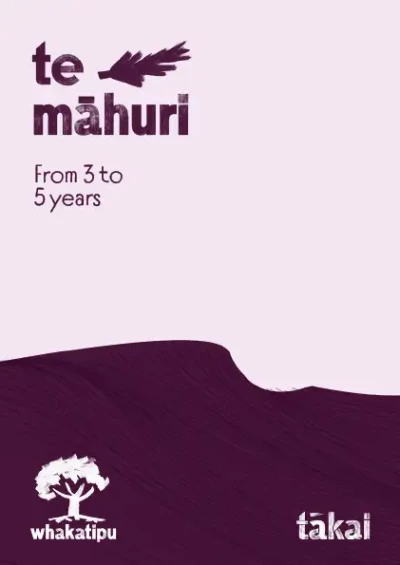 pdf 11 MB
pdf 11 MB
